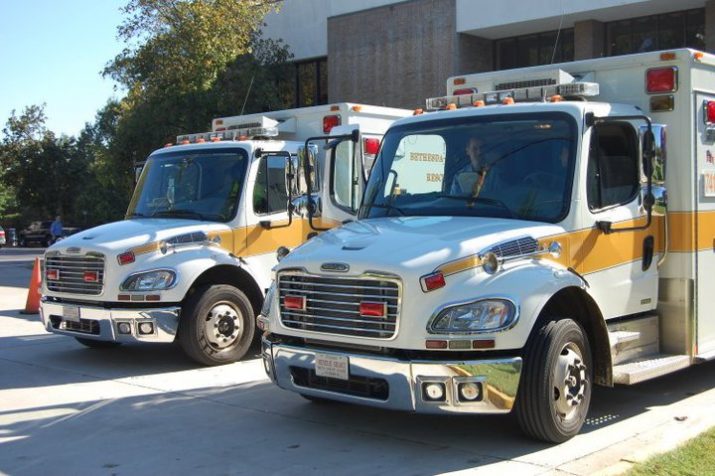In An Emergency, Be An Asset, Not A Liability
By Wilder Leavitt
October 17, 2014 • Fact checked by Dumb Little Man

Most of us experience life as a set of predicable events that unfold as a series of manageable challenges. When we hit a speed bump in our day, there is usually plenty of time to select among several amenable choices or at least choose the least of all evils. However, once in a while, we are faced with an event that qualifies as an emergency, a situation that raises our heart rate, places us in a position of stress and indecision, and which may actually threaten our life or limb. When emergencies happen, there is little time for comprehensive analysis, thoughtful contemplation and making good choices may feel impossible. These moments in life might affect us directly, our family or friends, or those nearby who we just happen to come upon. How a person prepares for and actually responds to an emergency can have a profound effect on the outcome of the incident. So if and when the time comes, would you rather be an asset or a liability?
Many people might think to themselves, “I’m not a hero. I’m not a first responder. I don’t think I would respond well and make a difference in an actual emergency.” Those people should remember that all professional emergency responders once started out as simply community citizens who decided to train and equip themselves to respond to crises. Police officers, firefighters, paramedics and emergency medical technicians (EMT) have built a foundation of skills to approach each emergency situation calmly, systematically which greatly improves the quality of care they provide. By employing a few of these tactics, anyone can prepare herself better to make a real difference for herself or someone else in an actual emergency.
Here are five strategies everyone can learn and employ when confronted with an emergency. When others around you are hesitating, you will be the one stepping into the breach and making the situation better for everyone.
1. Be prepared for the emergency that will come. You might live a full life and never experience a true emergency. However, if you live long enough, you will probably find yourself in the presence of an emergency at least once. When thinking about unpleasant events, many people believe that the best way to deal with them is to avoid them. This is why too many people fail to go to the dentist frequently enough or delay filing their taxes until the last possible moment. When it comes to emergencies, the common wisdom is either “it won’t happen to me” or “if an emergency does happen, someone else will be there to take care of it.” The simple truth is that emergencies happen to people all the time no matter where they live, what their socioeconomic class is, or how old they are. So you might as well prepare yourself for the emergency that will ultimately come and visit you. Easy ways to become prepared for an emergency are:
a. Keep important information about yourself, your spouse, and your children with you at all times. Your smartphone is a perfect place to store key contact information, medical history and current medications, and any special end of life provisions you have made for yourself as long as someone can access. Other great places are your wallet, purse, medical alert bracelets and necklaces, and posting important information on your refrigerator door or on the back of your main entrance door.
b. Educate yourself by taking a cardiopulmonary resuscitation (CPR) course, a first aid course, and/or attend any local presentations or lectures provided by your local hospital or fire department. The time to know what to do is before the emergency happens. These basic skills are in greatest demand for most emergencies. It cannot be overstressed how many lives are saved annually by early and effective CPR and automatic external defibrillator (AED) defibrillation.
c. Buy or build a small, first aid kit for your house and for your cars. You would be surprised how helpful having a Band-Aid or 4”X4” sterile dressings and tape can be in many situations.
2. Stay calm. When I am teaching new paramedics in the field after they have completed their coursework, most are very competent with the knowledge and skills they need to practice emergency medicine. What they typically lack is enough confidence and composure under pressure to perform effectively. I often tell them, “Master your adrenaline; don’t let your adrenaline master you.” Emergencies trigger an emotional response in most people especially those who are not specifically trained to manage their excitement. People experience fear, insecurity, stress and anxiety in turn causing them to panic, recoil and mentally freeze during a crises situation. Your very first step when encountering an emergency is to stay calm. Many people around you will be upset and will react emotionally which threatens to paralyze their ability to help. By staying calm, you have a better chance of summoning your skills and your ability to aid someone else. Specific tactics to stay calm include:
a. Be active, not passive about staying calm. This is part of your preplanned response, not something that comes automatically to most of us. As you process information about the incident unfolding before you, continually ask yourself, “Am I staying calm?”
b. Tell yourself to “stay calm.” Like a partner, use your inner voice to remind yourself to keep a level head as you face new information and as the emergency evolves. Just because you are calm at the beginning of the incident doesn’t mean that you can’t become fearful and excited later on. Continually work at staying calm.
c. Breathe. Concentrate on your breathing even as you go about making decisions and taking actions. Breathe as regularly and evenly as you can. If you start breathing too fast, take a moment and consciously slow it down.
d. Take a minute, pause for a break. Sometimes during an emergency, you will need to collect yourself, stop your heart from beating out of your chest and keep the mental horses from running away from you. Although it may feel like an eternity to you, stop whatever you are doing, pause, and take a little break from the action. Three to five seconds of delay while you recompose yourself will help you to think more clearly, see aspects of the emergency that you may have been ignoring, and ultimately lead to better decisions without significantly compromising the aid you are providing.
3. Get ahead of the emergency. Instead of simply reacting to the next event in the emergency, think about what should happen next before you have to do it. For instance, suppose you are helping a woman who is having a heart attack. You are right to help her to find and take her nitroglycerin medication and to make her comfortable and keep her warm. But you should also be directing someone to call for paramedics, identifying a route for the emergency responders to get to your patient and placing someone to meet and escort the paramedics to your patient. Getting ahead of the emergency helps you anticipate incident needs before they happen and devise more effective solutions by using the additional time available to you when you think ahead.
4. Do what is needed, not what you want to do. In some emergency settings, there will be more than one person trying to help. You may want to take a particular role that has already been assumed by another. Resist the temptation to compete for that position and instead look for gaps in the emergency response and fill those. For instance, you may want to try out your newly acquired CPR skills, but when you arrive on scene of a patient in cardiac arrest, you see three people doing effective CPR and one asks you to call 911. Although this may seem like a mundane task and less than heroic, it is vitally important to the patient’s chances for survival. Your quick action is an integral link in the patient’s chain of survival. Doing what is needed rather than what you would like to do results in more required tasks being accomplished and less competition to complete the more visible and attractive tasks. They are all part of the solution.
5. Collect information, assess the situation, and act. When time is of the essence, you must very efficiently collect information about the emergency, quickly analyze a good course of action and then act. Recognize that you will not have time to collect all or even most of the information you usually have available to you when you make most of your decisions. Become comfortable with making due with less information. Recognize that you will not have time to analyze the information like you usually do when you make most of your decisions. Become comfortable with making due with less time for analysis. And most importantly, decide what to do and act. Try to push past analysis paralysis, decide to act and act. Although most emergency responders wish they had not made the bad decisions they have made in their careers, they truly regret inaction. When we fail to act at all, we have absolutely no chance of helping someone in need.
Equipped with these tools, you are now awaiting the emergency that is to come. But you are a little less apprehensive, a little less scared that you will freeze and be of no use. Instead, you are going to be prepared, you are going to stay calm, you are going to get ahead of the emergency as it unfolds, you are going to see response gaps and fill them by doing what is needed, not what you want to do, and you are going to collect information, quickly analyze it, and above all ACT. You will be an asset, rather than a liability. And you will have made a difference.
Wilder Leavitt
Wilder Leavitt is an attorney, writer, teacher and 9-year volunteer paramedic in the Washington, DC area. He responds to medical and trauma emergencies trying to make a difference and save lives.


